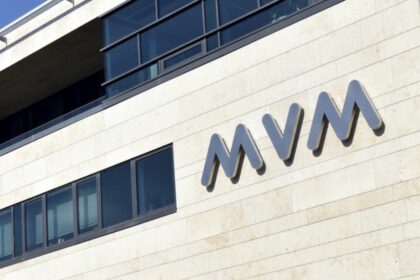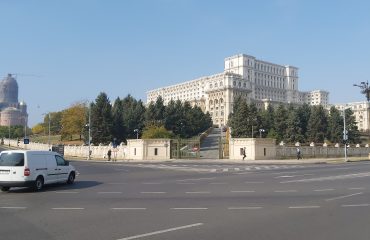
Romania’s energy landscape faces a pivotal moment following the December 16, 2024, announcement that Hungary’s state-owned energy conglomerate, MVM, intends to acquire a 68% stake in E.ON Energie Romania. Valued at approximately EUR 205 million, this deal would give MVM direct access to around 3.4 million Romanian customers, spanning natural gas and electricity services.
While the acquisition appears to be a straightforward business transaction at first glance, it has triggered intense debates over national security, potential Russian influence, and the broader implications for Romanian-Hungarian relations. Against a background of recent political uncertainties and heated rhetoric from nationalist groups, the future of this acquisition hinges not only on corporate negotiations but also on regulatory and diplomatic manoeuvring.
Spotlight on National Security
A central concern among Romanian officials is the source of MVM’s capital. Although MVM is state-owned by Hungary, some fear that hidden financial channels might be linked to Russian gas transactions, potentially increasing Moscow’s indirect influence in Romania’s critical energy sector. This fear is particularly acute after a major political scandal that saw presidential elections cancelled after alleged foreign interference. While no direct evidence of Russian meddling has surfaced publicly, the heightened sensitivity around such matters is driving calls for thorough oversight of the MVM-E.ON deal.
Energy Minister Sebastian Burduja has repeatedly stressed the need for a diligent review to ascertain whether the acquisition aligns with national security interests. Burduja’s statements signal that the government intends to comb through the proposed deal, examining standard financial and competition regulations and potential security pitfalls.
Financial and Market Scrutiny
Equally contentious is the acquisition’s price tag—approximately EUR 205 million. Critics, including some Romanian officials, argue that the valuation surpasses E.ON’s actual market worth, pointing to the possibility that MVM might be “overpaying” for strategic or political reasons rather than commercial logic alone. Such speculation intensifies the scrutiny surrounding the origins of MVM’s capital and the long-term strategic goals behind the purchase.
Beyond market valuation, Romanian authorities are looking at competition compliance and consumer impact. If MVM acquires a substantial share of Romania’s energy distribution, it could reshape pricing, investment priorities, and overall market dynamics. Although the Romanian government typically encourages foreign investment, particularly in infrastructure, the complexity of this deal has put an unprecedented spotlight on balancing commercial benefits with national and regional security considerations.
Rising Nationalist Backlash
Not all the opposition originates from government corridors. Romanian nationalist voices have labelled the acquisition as “treason,” urging officials in Bucharest to block the deal outright. They view a Hungarian state-owned enterprise controlling a critical piece of Romania’s energy supply as a direct threat to national sovereignty. These calls have amplified tensions that occasionally flare up between the two neighbours, evoking historical grievances and fears of undue Hungarian influence.
Romania’s ongoing sensitivity to external interference is a complicating factor in the public debate. Though devoid of concrete proof of Russian involvement, the recently nullified presidential election has sharpened the public’s awareness of how foreign players could potentially sway domestic outcomes—especially in a crucial sector like energy.
Diplomatic Dimensions: The Schengen Connection?
A notable dimension of this story is Hungary’s endorsement of Romania’s bid to join the Schengen Area. Joining Schengen remains a strategic priority for Romanian policymakers, as it would facilitate cross-border travel and strengthen the country’s integration within the European Union. Hungarian officials have repeatedly supported Romania’s Schengen ambitions—leading some observers to speculate that the MVM-E.ON deal could be part of a broader quid pro quo.
Though neither government has confirmed such a link, the timing feeds speculation that the transaction might be a diplomatic bargaining chip. If Romania approves the acquisition with limited objections, Hungary’s vote of confidence for Romania in EU forums may solidify. Conversely, if Romanian regulators either stall or block the deal, it could raise questions about whether Budapest might withdraw its support on the Schengen matter.
Potential Outcomes, What They Mean for Romania
Regulatory Hurdles
Romanian competition and national security authorities could impose stringent conditions or veto the acquisition. Such measures might demand full disclosure of MVM’s financial backers or obligations to invest in local infrastructure to mitigate security risks.
Energy Market Realignment
MVM’s expanded footprint could reshuffle Romania’s gas and electricity sectors if the deal moves forward. This could affect pricing, regional energy cooperation, and Romania’s relationships with other European suppliers.
Diplomatic Fallout or Opportunity
A streamlined approval might be cast as a gesture of goodwill, aligning with Hungary’s overt support for Romania’s Schengen ambitions and potentially reinforcing bilateral ties.
A drawn-out review or rejection could invite criticism from Hungary and fuel nationalist sentiment within Romania—potentially complicating broader European negotiations.
Public Trust and Transparency
Amid ongoing concerns about foreign interference and manipulative media campaigns, Romanian officials will be under intense pressure to ensure transparency. A rigorous review process could bolster public trust, regardless of whether the deal proceeds.
The MVM-E.ON acquisition drama underscores the intricate interplay of economics, security, and diplomacy in Romania’s evolving landscape. With the high stakes, Romanian regulators and political leaders are walking a tightrope—aiming to attract foreign investment while shielding critical infrastructure from undue external influence.
Simultaneously, the country’s desire to join Schengen introduces an extra layer of diplomatic complexity. Whether or not Romania decides to give MVM the green light, the outcome will reverberate well beyond corporate boardrooms, potentially shaping Romania’s European integration trajectory and the region’s energy equilibrium for years to come.
At Lobby Romania, we remain committed to delivering in-depth analysis of the nation’s most pressing issues. Stay connected for further updates on how this deal unfolds—and what it means for Romania’s future in Europe’s energy and political arenas.




